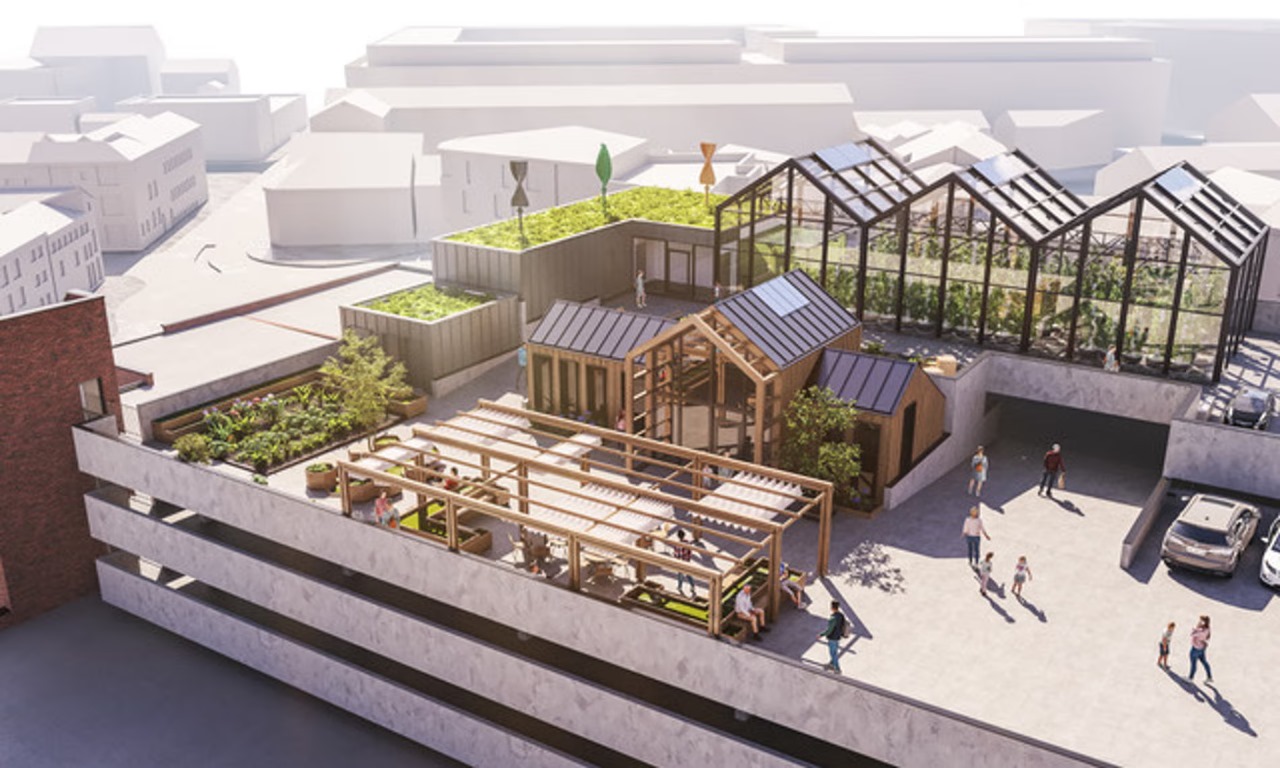Plans have been submitted to create a first-of-its-kind urban farm on top of a multi-storey car park in Birmingham as part of a vision to “turn grey space to green productive space”.
Slow Food Birmingham, a grassroots organisation that promotes hyperlocal food production, has sent proposals to the council to build a farm, glasshouses, community space and garden, as well as an education hub and cafe on the site.
The farm will provide fresh locally grown food for Birmingham residents, it said, while promoting sustainable agriculture and reducing carbon emissions.
“Our proposal is part of a system rethink designed to provide food security as we cope with a changing world,” said Kate Smith, the founder and projects lead at Slow Food Birmingham.
The group said repurposing the top floors of the car park was the first step of its vision to “turn grey space to green productive space with the needs and wants of the local community at its heart”.
“One of the goals is to be able to show people that we are in the middle of a city and we are growing food 12 months of the year,” said Smith. “We want to be bringing the community in and giving them an opportunity to get their hands dirty, talking about what food they can buy and how they might cook it.”
The development, if approved, would be built on the top floors of Vyse Street car park in the Jewellery Quarter area of the city and managed by a community cooperative.
“The Jewellery Quarter has got the smallest amount of green covering of the entire city so there is nowhere people can grow. It was during lockdown that one of our members had the idea of using the space on top of the car park because we know as residents it is underutilised,” said Smith, adding they were inspired by the world’s largest urban farm, which is on a rooftop in Paris.
The plans include a biodiversity centre, home to a cafe and education hub that would form partnerships with local schools and colleges to promote interest in food cultivation and cooking.
Urban Design Hub, which created the designs for the project, said: “The hope is that by using circular economy principles, this project can be a catalyst for reconnecting the local community to healthier and locally grown food while shifting their perception of what the built environment looks like.”
The car park would also host a hub for delivering locally grown produce by cargo bike to residents, businesses and food justice groups in the Jewellery Quarter and beyond.


